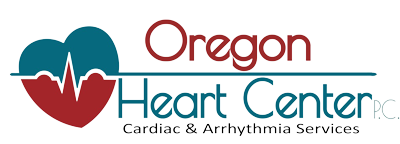We treat a wide variety of arrhythmias at Oregon Heart Center. Whether you are dealing with a previously diagnosed condition or have noticed new palpitations and would like to understand more, we can assist you. Our cardiologists utilize the latest therapies including ablative techniques by Dr. Saha, electrophysiologist.
Palpitations
Atrial fibrillation
Heart block(s)
Atrial Flutter
Ventricular Tachycardia
Supraventricular Tachycardia
Bradycardia
PVC/PAC
Atrial Fibrillation (AFib or AF), what is it?
Atrial fibrillation (also called AFib or AF) is a quivering or irregular heartbeat (arrhythmia) that can lead to blood clots, stroke, heart failure and other heart-related complications. At least 2.7 million Americans are living with AFib.
Here’s how patients have described their experience:
“My heart flip-flops, skips beats, and feels like it’s banging against my chest wall, especially if I’m carrying stuff up my stairs or bending down.”
“I was nauseated, light-headed, and weak. I had a really fast heartbeat and felt like I was gasping for air.”
“I had no symptoms at all. I discovered my AF at a regular check-up. I’m glad we found it early.”
What happens during AFib?
Normally, your heart contracts and relaxes to a regular beat. In atrial fibrillation, the upper chambers of the heart (the atria) beat irregularly (quiver) instead of beating effectively to move blood into the ventricles.
If a clot breaks off, enters the bloodstream and lodges in an artery leading to the brain, a stroke results. About 15–20 percent of people who have strokes have this heart arrhythmia. This clot risk is why patients with this condition are put on blood thinners.
Even though untreated atrial fibrillation doubles the risk of heart-related deaths and is associated with a 5-fold increased risk for stroke, many patients are unaware that AFib is a serious condition.
Treatment
Medications for atrial fibrillation (AF or AFib)
Medications are often prescribed to prevent and treat blood clots which can lead to a stroke. Additional drugs may be prescribed to control heart rate and rhythm in the AFib patient. These medications may also be used in conjunction with other treatments. The heart rhythm can be more difficult to control. The longer you have untreated AFib, the less likely it is that normal rhythm can be reestablished.
Electrical cardioversion– the rhythm reset
Electrical cardioversion is a procedure in which a patient receives an electrical shock on the outside of the chest (while under mild anesthesia) using either paddles or patches. The shock can be used to “reset” the heart to a normal rhythm. The procedure is similar to defibrillation, but uses much lower levels of electricity.
Radiofrequency ablation or catheter ablation
Ablation is used for cardiac arrhythmias when long-term medications or electrical cardioversion are either not preferred or were not effective. Before ablation surgery, electrical mapping of the heart is performed. An electrically sensitive catheter is used to map the heart muscle and the origins of the “extra” electrical activity throughout the heart. The map tells the physician which areas of the heart are creating problematic electric signals that interfere with the proper rhythm.
Watchman
Atrial fibrillation, or AFib, affects your heart’s ability to pump blood normally. This can cause blood to pool in an area of the heart called the left atrial appendage, or LAA. There, blood cells can stick together and form a clot. When a blood clot escapes from the LAA and travels to another part of the body, it can cut off the blood supply to the brain, causing a stroke.
In people with AFib not caused by a heart valve problem, more than 90% of stroke-causing clots that come from the heart are formed in the LAA. That’s why closing off this part of the heart is an effective way to reduce stroke risk.
The WATCHMAN Implant fits right into your LAA. It’s designed to permanently close it off and keep those blood clots from escaping. WATCHMAN is about the size of a quarter and made from very light and compact materials commonly used in many other medical implants.
As mentioned, our office treats a wide variety of arrhythmias. Please contact our office to see how we may assist you.

